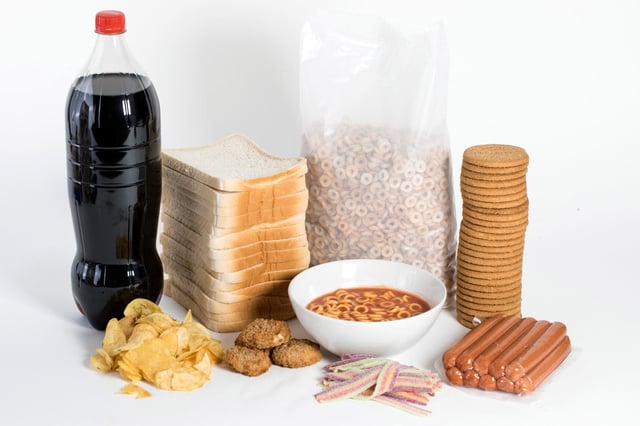Overview
- CDC data show that Americans aged one and older obtained 55% of their daily calories from ultra-processed foods between 2021 and 2023, with children aged one to 18 deriving nearly 62%.
- Ultra-processed foods are industrially formulated products high in calories, saturated fats, added sugars, salt and chemical additives such as emulsifiers and preservatives.
- High consumption of these foods has been linked to increased risk of obesity, type 2 diabetes, heart disease, certain cancers, depression, anxiety and premature death.
- Health experts recommend limiting ultra-processed foods at home, investing in healthier school meals and reducing marketing of these products in low-income and school settings.
- A study of UK dietary data finds that current nutrient-based HFSS regulations capture only about 60% of calories from ultra-processed foods, highlighting gaps in how policies target industrially processed products.



